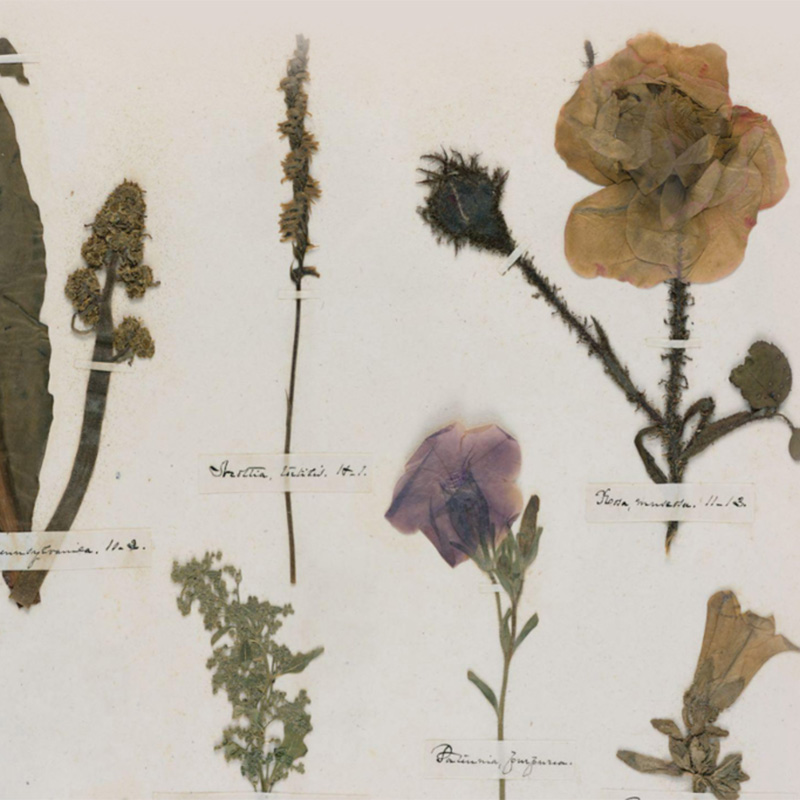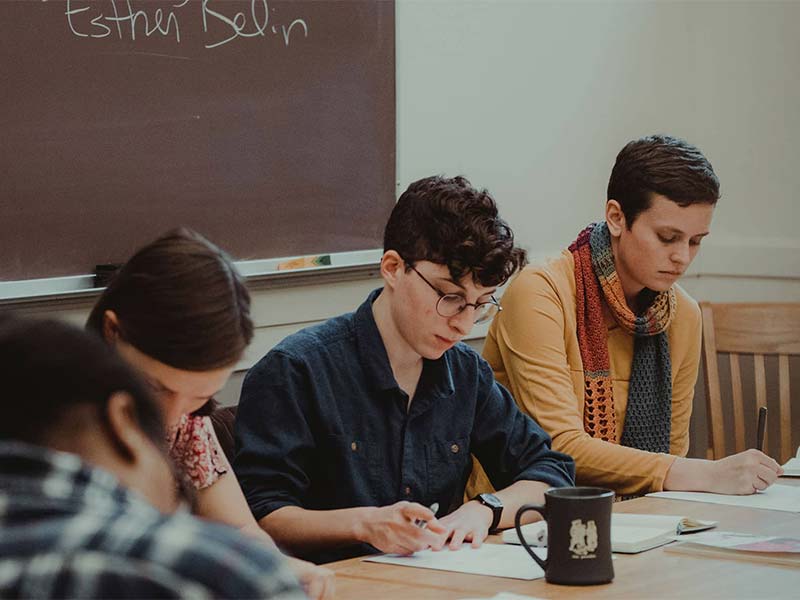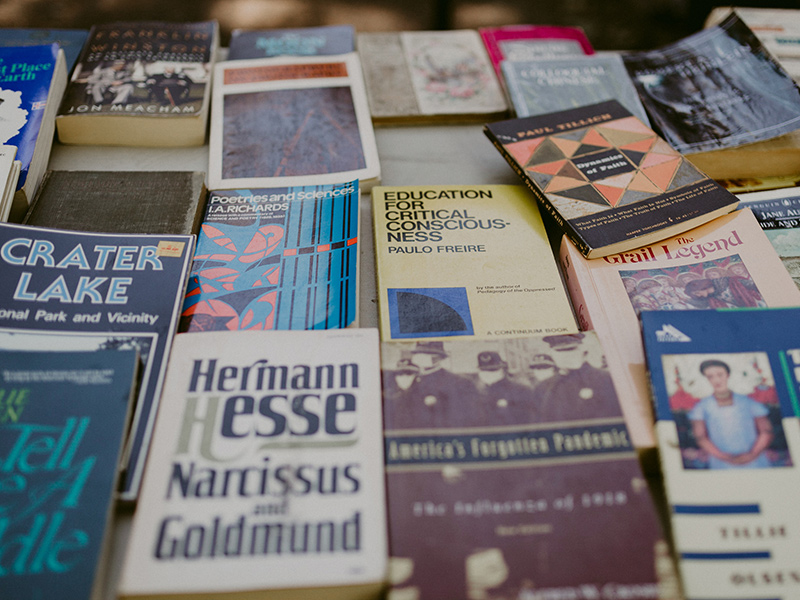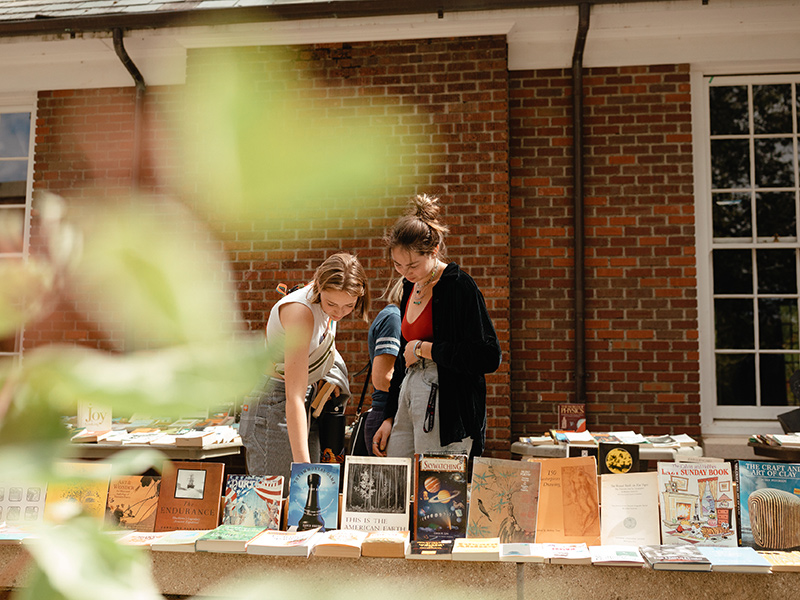Immerse yourself in German literature written since 1990, with particular focus on experimental forms of writing such as the prose poem, pop literature, and the deconstruction of narrative patterns. Engage with classmates as you use literature to explore topics like the unification of Germany, multiculturalism, postfeminism, and more.
What You’ll Study in the Bachelor’s Degree in German
Build a foundation for German fluency, and read German-language literature and theory with a German major at Reed College. Study authors who have left their mark on virtually every field of the humanities and social sciences, and enjoy learning in a language lab and in conversation sessions with a language scholar who is a native speaker.
Roadmap to the BA in German at Reed
Delve into the German language and study abroad as a student in the German department at Reed. As an upper-division student, concentrate in either literature or culture studies, and take a critical look at Germany’s cultural and historical influence. Complete your studies with a senior thesis that examines a particular author or period (literature) or a German intellectual tradition through the methodological perspectives of a variety of fields (culture).
Year One
Build foundational speaking, reading, and listening skills in German or take a placement test for more advanced content. First- and second-year German courses include grammar review, literary and historical studies, reading in German, and conversation.
Strengthen your critical thinking skills with courses outside of your major, including Humanities 110, Reed’s foundational, yearlong course for first year students.
Why Study German at Reed College?
Flexible Program
German majors can choose between a literature or culture studies concentration, a flexible two-track program that offers a variety of perspectives on the analysis of texts. With both concentrations, it may be possible for students to work on particular areas of interest in an independent study.
Live in the German House
Reed’s German House, both a residence hall and cultural center on campus, allows students to immerse themselves in the language and participate in regular events, including faculty-student dinners and holiday parties, weekly coffee hours, and a film series. Each year, a German university student lives in the house to assist with classes and extracurricular activities while providing regular conversational opportunities with a native speaker.
Study Abroad Opportunities
Studying abroad gives students the opportunity to live and work in a diverse multicultural society in which new understandings of national and transnational identity are being forged. Reed encourages German majors to spend one or two semesters studying in Berlin, Munich, or Tübingen. With their virtually unlimited course offerings, these large universities are an excellent complement to the intensive liberal arts college experience at Reed.
Explore Study Abroad Opportunities
Careers for German Majors
Reed German majors learn how to read, speak, and understand German. They independently investigate and define complex topics, analyze literary texts or cultural phenomena, and present, discuss, and defend their work, leading them to a range of career paths.
- ICT Technician and Trainer, Bonn International School
- Musician/Cellist, Vancouver Symphony Orchestra/Vancouver Opera
- Assistant Senior Instructional Professor; Director of the German Language Program, University of Chicago
- Physician, Pediatrics, John Muir Medical Center
- Publicity Manager, Simon and Schuster
- Senior Marketing Manager, Adidas
- Director of Investor Relations, Columbia Sportswear
Achievements of Reed Graduates with a German Degree
German majors have been awarded prestigious fellowships, grants, and prizes.
- Fulbright teaching assistantships
- Mary Barnard Academy of American Poets Prize
- Winter International Travel Fellowship
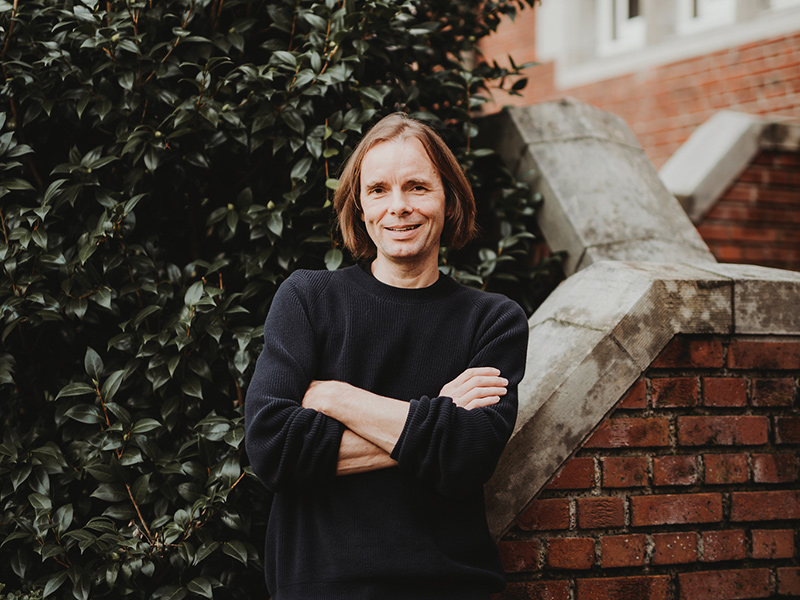
Prof. Examines Comparative literature, Literary Theory & Philosophy
Reginald F. Arragon Professor of German & Humanities Jan Mieszkowski has long maintained that one of the defining features of a Reed student is an eagerness to engage with new ideas and forms of inquiry. “I never cease to marvel at the focus and drive of my students,” says Jan. “Their creativity and intellectual fortitude is a constant source of inspiration for me.”
In his scholarship, Jan has developed innovative approaches to canonical texts and arguments. In his first book, Labors of Imagination (2006), he shows how debates about the power of poetry helped shape the modern conception of freedom. In Watching War (2012), he argues that since the late eighteenth century we have all been unwitting spectators to military conflicts, which are waged with an eye to distracting, entertaining, and sometimes even boring their audiences. In his most recent book, Crises of the Sentence (2018), Jan considers why literary scholars have had surprisingly little to say about what a sentence actually is.



